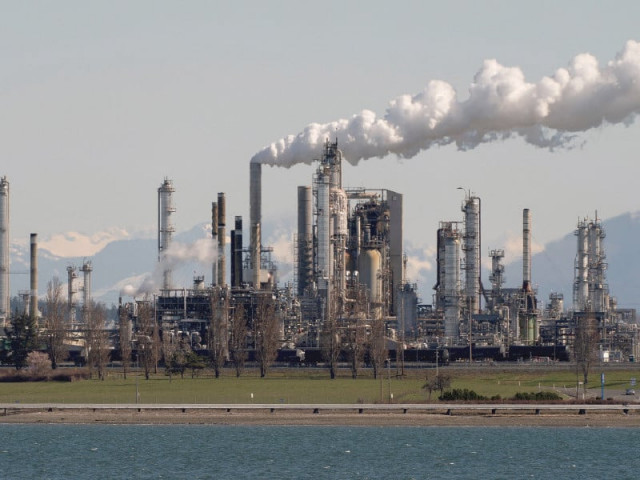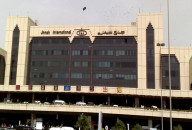Refineries at risk amid surplus imports
OCAC criticises OGRA's import approvals; calls for immediate enforcement of local procurement rules

With the country's oil stocks swelling due to a surge in both imports and smuggled petroleum products, the oil industry has lodged a strong protest with the Oil and Gas Regulatory Authority (OGRA), warning that the situation could lead to the collapse of local oil refineries.
The ample diesel stocks have also raised questions regarding OGRA's decision to approve further imports. Sources revealed that OGRA had initially scheduled a meeting on Tuesday to address the concerns raised by the Oil Companies Advisory Council (OCAC) but abruptly postponed it, raising doubts about OGRA's role in the import of petroleum products. The unexpected postponement, without any explanation, has left the oil industry discontented.
Currently, the country holds 461,000 metric tonnes of fuel oil, enough to meet domestic demand for 301 days, and 445,146 metric tonnes of petrol, sufficient for 21 days. However, sources indicated a lack of demand for oil within the country, with 90% of furnace oil now being exported.
Pakistan's reserves of high-speed diesel (HSD) are sufficient to meet the nation's demand through September, prompting further concerns about OGRA's approval of HSD imports by a specific oil marketing company. As of this week, Pakistan had approximately 771,000 metric tonnes of HSD in reserve. Given the nation's average consumption of 15,600 metric tonnes per day, these stocks are adequate to sustain the country for the next 49 days.
The existing HSD reserves exceed the mandatory 20-day supply that oil companies are required to maintain for Pakistan's commercial and operational needs. These stock levels are sufficient to satisfy demand through September and into October. Given this ample supply, there is no need for significant fuel imports, which could otherwise strain the country's foreign exchange reserves.
It is worth noting that the oil sector has repeatedly expressed concerns over OGRA's decision to allow a specific oil marketing company to import HSD, despite local refineries having sufficient stocks to meet domestic demand and their willingness to serve the oil marketing sector.
In a letter dated August 21, the OCAC conveyed its frustration to OGRA, criticising the regulator for consistently permitting fuel imports over several months instead of prioritising locally produced HSD. The industry body stressed that imports should only occur when there is a deficit. The letter also highlighted that current practices violate the Pakistan Oil (Refining, Blending, Transportation, Storage, and Marketing) Rules 2016 (OGRA Rules).
Moreover, the OCAC raised concerns about unilateral decisions made during the Product Review Meetings. The letter brought to OGRA's attention allegations of unfair business practices by the said company, which negatively affect the entire oil industry.
An official response from OGRA was awaited by The Express Tribune until the filing of this report.
The current situation has placed immense pressure on the oil refining sector, a critical component of the nation's energy supply chain, which provides over half of the country's petroleum products. This sector is already facing significant challenges, including the unchecked influx of smuggled petroleum products. Once limited to border areas, these illicit products are now widely available in the provinces of Punjab and Khyber-Pakhtunkhwa.
The OCAC has urged OGRA to enforce the OGRA Rules, which mandate that oil marketing companies prioritise sourcing products from local refineries before considering imports. The council stressed that all industry issues must be addressed with fairness and transparency to ensure the stability of the entire sector.



















COMMENTS
Comments are moderated and generally will be posted if they are on-topic and not abusive.
For more information, please see our Comments FAQ